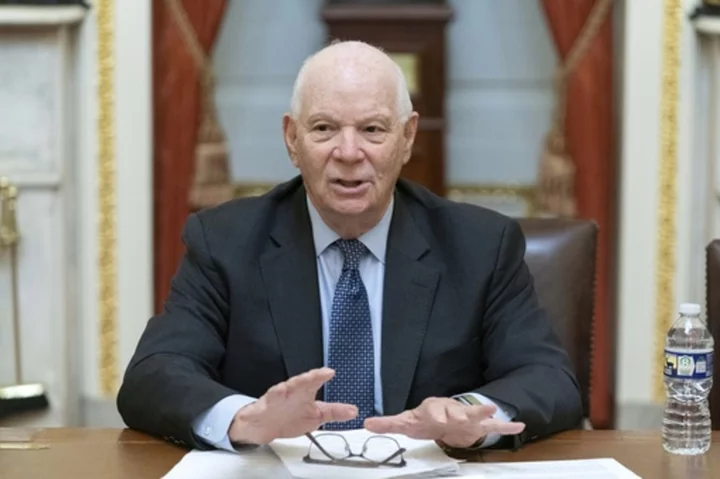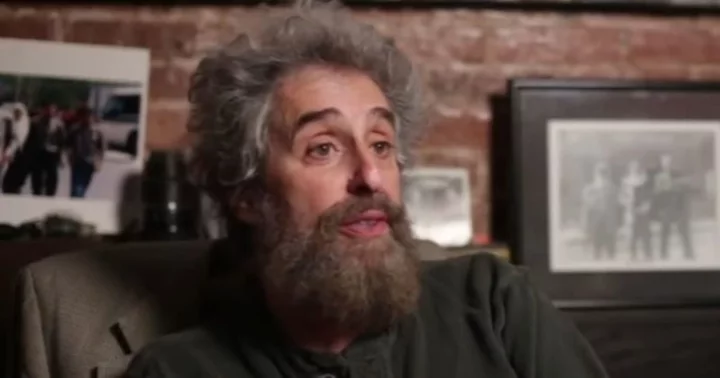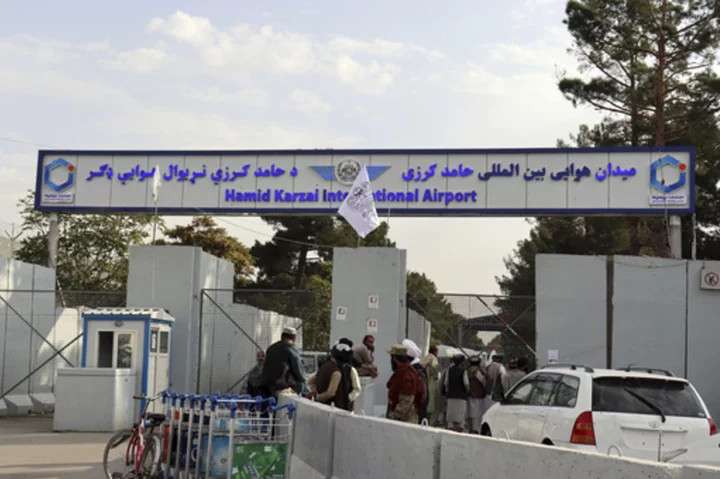WASHINGTON (AP) — The new chairman of the Senate Foreign Relations Committee said Thursday he is considering policy changes toward Egypt, Turkey and other countries as he took over the powerful leadership of the panel, replacing indicted Sen. Bob Menendez.
Sen. Ben Cardin, a veteran Maryland Democrat, will have an abbreviated term leading the committee because his term expires in January 2025 and he is not seeking reelection. He described his unexpectedly inheriting the chairmanship, with its power to help shape how the United States approaches the rest of the world, as a “pinch yourself” moment.
Cardin spoke to reporters under the chandelier and vaulted ceiling of the historic 19th-century committee room on his first full day on the job.
Menendez was indicted on Sept. 22 on charges he and his wife, Nadine, accepted bribes including cash and gold bars in transactions that included using his position as committee chairman to influence some U.S. policy decisions in favor of Egypt's autocratic government.
The indictment alleges that included helping Egyptian President Abdel Fattah el-Sissi's government overcome human-rights restrictions limiting a small portion of what is more than $1 billion in annual U.S. military aid to Egypt.
Menendez and his wife have pleaded not guilty.
Cardin, before becoming chairman, had condemned the Biden administration's decision this year to override a human-rights prohibition on $235 million of this year's military aid to Egypt.
The administration cited national security interests for waiving the human rights restrictions. That was even though the State Department acknowledged Egypt had made no progress on detaining journalists, writers and rights advocates and other human rights abuses.
Asked Thursday if he intended to stop the distribution of that money if it could still be stopped, Cardin said he was “looking at his options." He said he wanted to give the administration and some lawmakers a hearing on the issue before reaching a final decision.
As chairman, Cardin can place holds on some funding and sales.
Cardin signaled another break, regarding Turkey, a NATO partner that for years has sought to buy advanced warplanes from the U.S. but been repeatedly blocked, including by Menendez. Menendez had placed a hold barring the sale of F-16s to Turkey, arguing in part that he was concerned about Turkey having more air power than Greece, its neighbor and rival.
Cardin made clear he was open to considering moving forward on the sales, if he is satisfied on points including any additional threat to Greece and on Turkey's human rights.
Turkey has used the veto power held by each NATO member to block Sweden's entry into Western military alliance, even though the U.S. and European allies want Sweden in the bloc to strengthen NATO's northern flank against Russia.
Turkey has linked its getting the F-16s to its decision on Sweden joining NATO.
Cardin, who attended a gathering of NATO ambassadors this week, said Turkey has indicated it would clear the way for Sweden’s membership in the first part of October.









